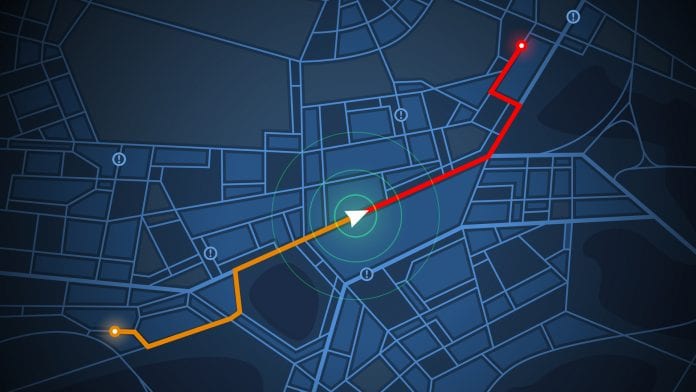
Researchers have developed an online resource – the VaxiMap – to help GP surgeries across the UK optimise the delivery of COVID-19 vaccines to over one million housebound patients.
The VaxiMap, developed by two engineering DPhil students from the University of Oxford, is a direct response to the problem reported by GP practices of how to deliver huge numbers of COVID-19 vaccines to housebound patients.
The mapping software has saved time, money, and energy for stretched NHS services.
Supporting the vaccine rollout
Since the launch of the VaxiMap in January 2021, 220,000 patients have been reached, 20,000 routes calculated, and the team estimates around £400,000 has been saved by the NHS in time efficiencies, which equates to 9000 hours of work.
Dr Robert Staruch, DPhil student at the Department of Engineering Science, said: “My friend was manually mapping his housebound patient locations to then plan routes for him to vaccinate them by car. I felt there was established platforms that could be utilised to streamline this into a much more efficient process. This vaccine roll-out requires high levels of efficiency to reduce dose wastage, and maximise roll-out amongst the vulnerable. VaxiMap does this.”
Staruch teamed up with colleague, Thomas Kirk, DPhil student at the Department of Engineering Science, and the pair created the software which plotted the optimal routes for home visits, factoring in precise dosing schedules and offering both walking and driving options for rural or urban settings.
Kirk put together different bits of tech, wrote the code, and put the website up as a free resource, specially designed to work with GP practice data.
Patient data
Healthcare professionals can upload Excel documents of anonymised patient postcodes and the website will sort the patients into the optimal order and map the routes.
Kirk said: “Because we were speaking directly to GPs, we knew exactly what was needed, so my job was to build the simplest possible thing that ticked all their boxes. The whole project – and the fact that we were able to get it online in 48 hours – is testament to the power of open-source software. All the tools we’ve used are freely available for anyone to access.”
Robert Staruch, a trainee Burns & Plastic surgeon in the Defence Medical Services, reached out to colleagues at jHubMed for support of the project, which provided £7,500 towards costs. Military vaccine teams have now adopted the software for their vaccine routes. Oxford University Innovation (OUI) and Magdalen College also contributed to the project, while Microsoft came on board as a technical partner via its Bing mapping services.
Dr Staruch said: “The platform doesn’t track any user or patient data so it’s entirely GDPR compliant, an obvious concern for NHS healthcare workers. Although a multitude of mapping systems exists, this integrates the nuances of vaccine delivery and patient numbers for route optimisation. I believe its success so far is its simplicity and ease of use.”
The developers, Thomas Kirk and Robert Staruch, based at the University of Oxford Department of Engineering Science, hope that VaxiMap will continue to contribute the UK’s vaccine roll out while also providing an-going tool for the NHS in the future.
Visit Vaximap here: https://vaximap.org/
























